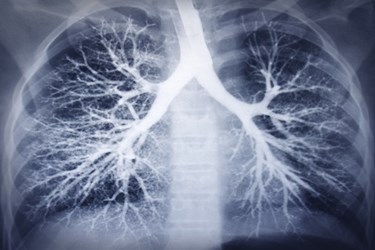Asterias Biotherapeutics, Cancer Research UK To Conduct Clinical Trial Of Lung Cancer Immunotherapy Vaccine
By Cyndi Root

BioTime and its subsidiary Asterias Biotherapeutics announced in a press release that they have agreed to conduct an immunotherapy vaccine trial for lung cancer with Cancer Research UK. The charity’s development and commercialization arm, Cancer Research Technology (CRT), will also participate in the trial of AST-VAC2 in subjects with non-small cell lung cancer. The trial will evaluate toxicity, safety, feasibility, immune response, and clinical outcomes.
Pedro Lichtinger, Asterias’ CEO, said, “The Asterias collaboration with Cancer Research UK’s Drug Development Office and CRT represents a major step in advancing our proprietary dendritic cell platform for the potential benefit of patients.”
Asterias and Cancer Research UK Agreement
Under the terms of the agreement between Asterias and Cancer Research UK, Asterias is responsible for the agent’s manufacturing process. Cancer Research UK will undertake production of AST-VAC2 and conduct the phase 1/2 clinical trial. After the trial is complete, Asterias has the option to license the data from the trial. The compensation terms for the license are pre-agreed upon and include an upfront payment, milestones, and royalties. If Asterias elects to decline the license, CRT may opt to acquire the AST-VAC2 Intellectual Property (IP) license and continue developing the product and return revenue share to Asterias.
AST-VAC2
AST-VAC2 is an allogeneic (non-patient specific) cancer vaccine. It works by stimulating the patient’s immune systems to attack telomerase, a protein often expressed in cancers but rarely expressed in normal cells. AST-VAC2 is sourced from human embryonic stem cells (hESCs) and can be produced on a large scale and stored for use. The agent’s mode of action is synergistic and complementary to other immune therapies.
Asterias’ Stem Cell Platform
The new collaboration between Asterias and Cancer Research UK represents an opportunity for Asterias to test its dendritic cell platform. Human embryonic stem cells allow the company to derive allogeneic dendritic cells for cancer immunotherapy. The technology advances regenerative medicine, using human stem cells to produce any human cell type. This capability is known as pluripotency and Asterias is using it to develop multiple treatments for degenerative diseases and rare conditions. To that end, Asterias acquired the cell therapy assets of Geron Corporation in October 2013, including 400 patents and patent applications for pluripotent stem cells, therapeutic cell types, and research cell banks.
